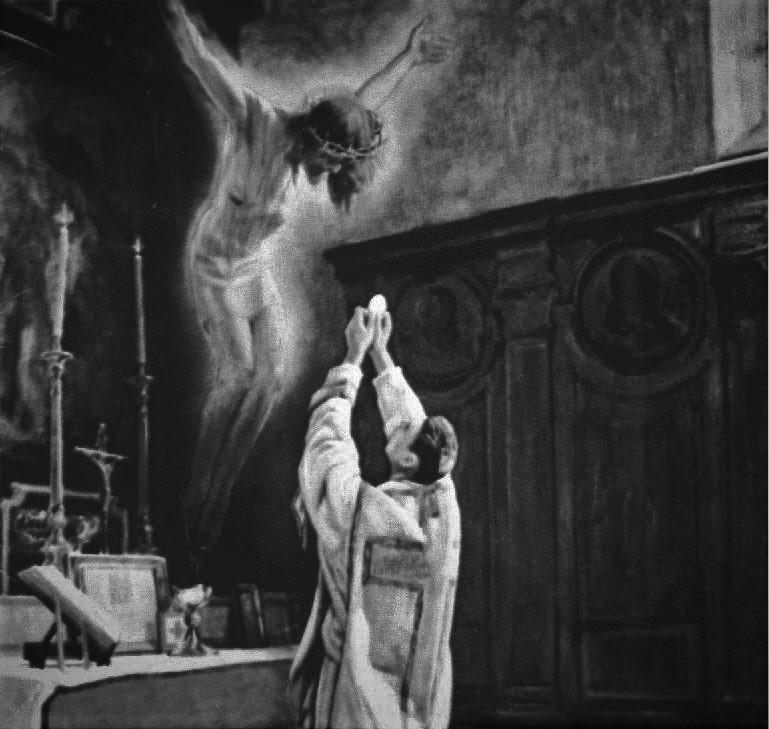Years ago, my mother caught my father off guard with a most profound question. She asked what he would miss about her after she died. That night, my father stayed up for hours writing a litany of things as tears poured down his cheeks.
Sadly, many of us take our loved ones for granted. Many fathers are in tears on their deathbeds, wishing they would have spent more time with their families rather than having squandered so many years on things that didn’t matter. As their judgment hastens, they wish they would have loved God more and sinned less.
Perhaps some marriages are influenced by our Lord’s command that we must love Him with our whole heart, soul, mind, and strength (see Mark 12:30), and therefore, loving our spouse must take a backseat. After all, there is no marriage in heaven. As a result, some pious people can easily misinterpret our Lord’s teaching by giving their spouse the scraps of their time. They carve out all the time in the world for mental prayer, which is noble, but imprudently fail to give their spouse fifteen minutes of undivided attention. More realistic is that most couples are too busy, bombarded by technology and the needs of their children, resulting in less quality time.
But perhaps there is something deeper, something toxic from the culture that is seeping into our marriages. Part of this toxicity stems from a utilitarian notion of marriage that sees a spouse for what they can give instead of what I can give them. Utilitarianism had led many to choose a spouse based solely on pleasure or happiness, avoiding pain and unhappiness at all costs. As a result, their spouse becomes a mere necessity, one who keeps him or her from being lonely, hungry, or raising children by themselves. But do they see their other as someone radically chosen by God to lead them to heaven, someone who will reveal our Lord’s love in the most profound and intimate way in a sacrament instituted by Christ Himself, someone who will suffer with them, helping them to carry their crosses of child loss, child rearing, financial stress, or sickness while fighting a pagan culture and a Church with few bold shepherds?
Maybe our skewed view of marriage was due to our own parents’ lack of affection, especially toward one another. Children need to see that their parents love each other, not just tolerate one another. Hence, a loving kiss upon arriving and leaving ought to be the bare minimum of spousal affection. And parents need to be affectionate to their children, or else they will seek it from others.
Tragically, many children have never witnessed true love because of divorce combined with a world whose creed is “do as you please as long as you are happy”—the gospel of utilitarianism, which is sadly preached in many Catholic and Protestant Churches. And yet, the only truly happy people are those who follow God’s will, particularly the saints.
When their husbands were away on business, Sts. Zelie Martin and Gianna Molla would write to their spouses—something of a lost art.
Saint Zelie once wrote, “I’m longing to be near you, my dear Louis. I love you with all my heart, and I feel my affection so much more when you’re not here with me. It would be impossible for me to live apart from you.” Saint Gianna once penned, “It’s because our love is so great that this separation is such a great sacrifice.”
These profound quotes reveal two saintly couples who were madly in love with their spouses, loving them more than their very lives. And that is why they couldn’t stand being apart from their spouses: because they were yoked body and soul. What was the secret to such saintly love? A cursory glance into their lives reveals that both couples attended daily Mass and made visits to the Most Blessed Sacrament during the week. Outside of our Eucharistic Lord, the Martins and Mollas’ best friend was their spouse, not their thousand virtual friends on social media. Just as Christ loved His Church more than Himself when He instituted the Holy Eucharist and died on the cross, so too did these spouses seek to emulate that love. These saintly couples reveal that a marriage is only as strong as a couple’s love for the Holy Eucharist, which in turn gave them the capacity to serenely suffer for Christ when they encountered tragedy.
In this month dedicated to the Sacred Heart, we see the depths of true love. The Eucharistic Heart of Jesus is the only true heart that shows us how to love—a heart freely wounded and vulnerable, holding back nothing for itself, a love so madly in love with His sinful creatures but unwilling to be profaned. Our Lord seeks some return: a pure reception, a visit during the week, a spiritual communion from home. Saint Therese once lamented that few people truly love Jesus. Could not the same be said about married couples? Few spouses are truly and madly in love with each other. It is quite evident that a couples’ love for the Holy Eucharist patterns their love for each other. Imagine a husband who attends Holy Mass once a week and never gives a passing thought to the Holy Eucharist throughout the week—his love will grow cold, and the same goes for his marriage. To love our spouse like many in our pagan world is no small task, but to madly love our Divine Spouse and earthly spouse is. Make no mistake, there is a correlation between belief in the Real Presence and belief in the sacrament of marriage.
As more and more couples no longer believe in the greatest sacrificial love before their eyes, the Real Presence, they will continue to see marriage through a utilitarian lens. Instead of laying down their lives for their spouse like our Eucharistic Lord does and striving to love their spouse with His love, they will seek to preserve their lives and selfishly use their spouse, particularly by birth control, neglecting their emotional needs, or even abusing Natural Family Planning to control their family size. On the contrary, saintly couples lovingly accept the number of children God wishes to send them. And saintly couples like the Martins and Mollas have the greatest intimacy in their marriages because they first have the greatest intimacy with the Holy Eucharist. At the same time, these couples battled the temptation to love their spouse more than God.
Just as our Lord loves it when we make surprise visits to show our affection and devotion, He calls us to do the same for our spouses. Yes, our Eucharistic Lord demands that married couples forget about themselves. Above all, He challenges us to die daily to our pleasures and wants so that our spouse is happy because without real sacrifice and suffering, there can be no spiritual gain or real union. Divorce, then, is a most bitter byproduct of the gospel of utilitarianism because couples are taught to avoid the cross. Tragically, many German bishops persist in preaching this false message of divorce and remarriage.
With His Sacred Heart exposed to St. Margaret Mary, our Lord said to her, “I have an ardent thirst to be honored and loved by men in the Most Blessed Sacrament, and I find hardly anyone who endeavors according to My wish to quench this thirst by making Me some return of love.”[1]
A saintly marriage begins and ends with the Holy Eucharist. Spouses that are taken for granted just like our Eucharistic Lord cannot bear this coldness and ingratitude forever, especially when it comes from within its own walls, from its own clergy and “Catholic” politicians. At some point, a spouse will walk away. God forbid it should happen again, but there might come a day soon when the Holy Eucharist is taken away from us because of abuse and neglect. What then would we miss about receiving Jesus into our souls? Do we not desire the most profound union possible, or do we prefer keeping Him at a distance from our climate-controlled houses?
And yet, if we madly love God and our spouses like the saints did in a godly, sacrificial way, and not a godless, utilitarian way, there will be no regrets on our deathbeds, for we will have consoled His Most Sacred and Eucharist Heart, a Heart which is loved by so few today, a Heart seeking some return like our beautiful spouses.
[1] John Croiset, The Devotion to the Sacred Heart (Charlotte, NC: TAN Books, 1988), 41.






